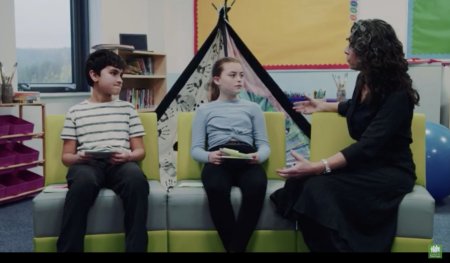BBC removes video that teaches children there are over 100 genders after backlash from parents

The BBC has removed a controversial video that taught children between the ages of 9 and 12 that there are more than 100 gender identities after parents objected to the “educational” content.
“We are aware that this particular film is being willfully misinterpreted by parts of the media and others on social media,” the BBC said in a statement. “As such, its original purpose and intention has been overshadowed. On this basis, we have made the decision to retire the film. We will continue to support teachers on this important topic in other ways.”
The video was widely criticized in 2019 and was in the spotlight once again this week as the BBC’s educational content is being consumed more widely due to the ongoing COVID-19 lockdowns.
The film, which was part of a series of nine films created by BBC Teach to provide curriculum support for personal, social, and health education teachers, shows a boy asking, “What are the different gender identities?”
Sex education teacher Kate Daniels responds, “We know that we have got male and female, but there are over 100, if not more, gender identities.” She adds, “You’ve got some people who might call themselves gender queer, who are just like, ‘I don’t really want to be anything, in particular, I’m just going to be me.’”
Two of the groups that criticized the video are the Coalition for Marriage and the Society for the Protection of Unborn Children. They called it “incredibly dangerous” and “corrosive and corrupting,” respectively, according to Christian Today.
“Parents are under attack and the BBC is fairly near the front of the charge,” SPUC’s Antonia Tully said earlier.
Stephanie Davies-Arai, the founder of a group called Transgender Trend, which represents parents against the diagnosis of children as transgender, told The Times in 2019: “This is made-up nonsense. People are free to identify as anything they like, but this does not change the reality that there are only two sexes. To suggest that being male or female is just a personal identity is false and will inevitably confuse children into believing that their biological sex is a choice.”
The BBC argues that the content was “clearly labeled as requiring advance viewing by teachers and came with extensive notes to support and guide teachers in their use of it when discussing health and relationships — topics that are part of the Primary curriculum in England.”
The Safe Schools Alliance, which has been leading a campaign against the controversial content, welcomed the decision to withdraw the video.
“The video was biologically inaccurate and undermined safeguarding,” it said, adding, “It is far from the only concern regarding content from BBC Education.”
Recently, BBC Bitesize, the corporation’s free online study support resource for school-age pupils in the U.K., also remove a cartoon that taught pupils “to be an ally” to their peers who have changed their gender pronouns.





















